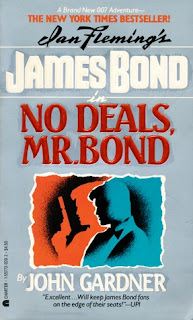After identifying the perpetrators and learning of their destination, they alert Star City sheriff Dale 'Hurricane' Dixon (Bill Paxton) to prepare for their arrival.
What the police do not know is that Dale and Fantasia have a shared past that could jeopardise an already difficult assignment.
A low-budget thriller released in 1992, One False Move marked an early credit for Billy Bob Thornton, who, as well as playing one of the villains, also co-scripted the film (with Tom Epperson). The movie also gave Bill Paxton his first lead role, and gave director Carl Franklin (Devil in a Blue Dress, Out of Time) his big break.
A great example of contemporary noir, distilled and refracted into a new form that does not feel like a homage to the chiaroscuro and fedoras, One False Move embodies the essence of classic noir - the existential dread of being stuck in a situation that you have no control over. In this universe, people make choices, and those choices trigger a series of consequences they have no control over.
No character feels like an archetype. Every character, from Fantasia through Ray and Dale, never fit any of the archetypal boxes: Fantasia is no femme fatale; Ray is a victim of his own addictions and paranoia; and Dale is not the upstanding citizen he initially appears to be. Even Pluto, the ostensible criminal mastermind, is undermined by his associates.
In light of Paxton's passing, watching this movie reaffirmed what a great actor he was. Mostly a character actor famous for his flashy turns in Aliens and True Lies, or his late-career success with Big Love, Paxton always rode a line between everyman and oddball. As Dale, he lends the green lawman a cocksure swagger that feels simultaneously like a macho front for the out-of-town officers he is working with, and a natural state of being.
Initially, Dale appears to be an open book - an honest man without the street smarts or foresight to be ready for the hardened criminals barrelling towards his small town. Paxton gives Dale a guileless optimism that is a refreshing inversion of the typical southern lawman.
When Fantasia shows up, Dale is forced to confront the one skeleton in his closet. Paxton excels in the latter half of the movie, as the 'Hurricane' has to face his past and his present threat at the same time.
What is great about One False Move is the way it effortlessly moves between character POVs, complicating the viewer's sympathies while placing their actions in a broader context that disrupts any clear binary between 'good guys' and 'bad guys'. As Dale is forced to recognise, no such dichotomy exists.
As Fantasia, Cynda Williams is great. Flighty, seemingly helpless yet always calculating, she is the furtherest thing from a 'femme fatale' in the movie. The fact that this movie did not launch her on to bigger things is a sad reflection of Hollywood's inability to diversify its casting.
The thing I loved about her character is how she is incapable of abandoning her companions, yet when given the opportunity, is totally willing to make her own moves that serve goals which go beyond her own self-interest.
I want to go further, but that would spoil an important plot point that really pushes One False Move into the conversation of crime movies.
To sum up, One False Move is a great undersign gem that is definitely worth your time. It is available to rent or purchase from iTunes.
See you in the new year!
If you are new to this blog, I also co-host a podcast on James Bond called The James Bond Cocktail Hour. Every episode, we do a review of one of the books and one of the movies, picked at random.
The latest episode is out today - to get in the holiday spirit, we review John Gardner's Christmas-set thriller Win, Lose or Die (1989). Available wherever you get your podcasts.


























